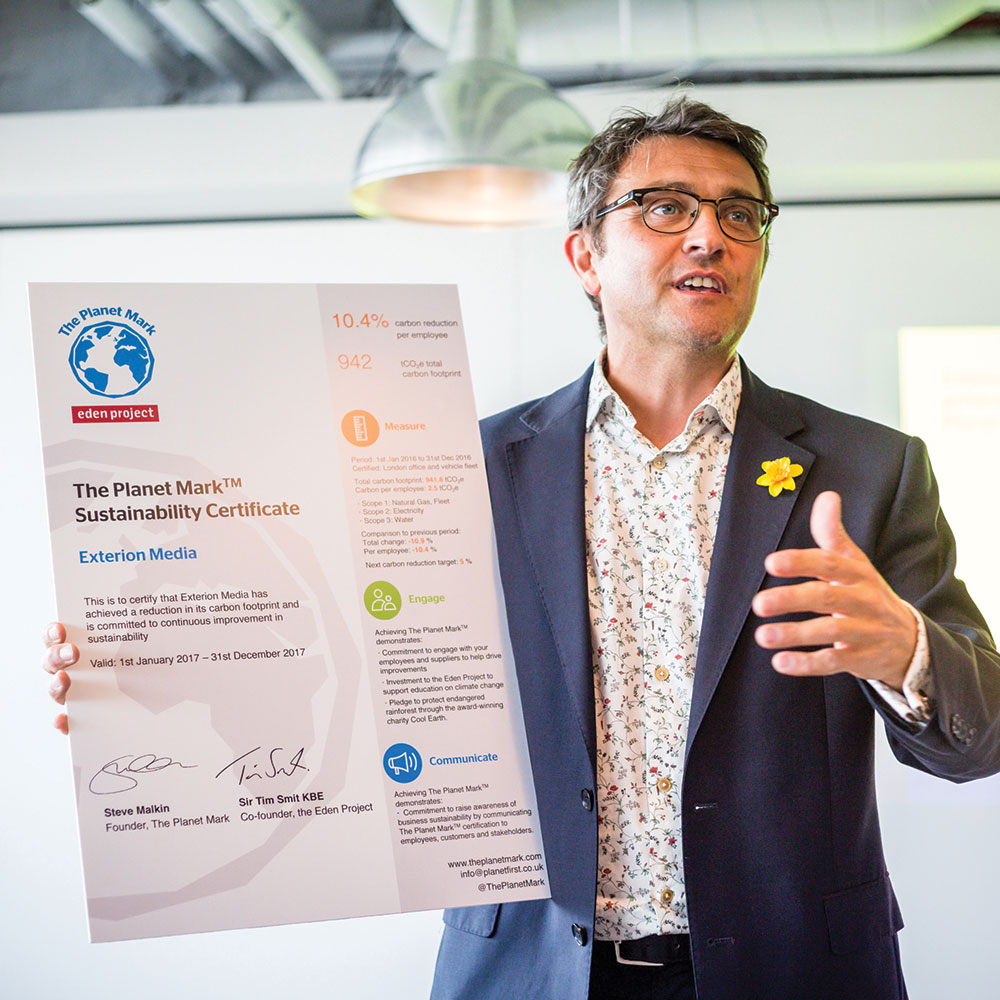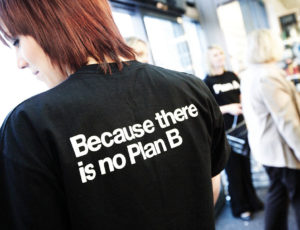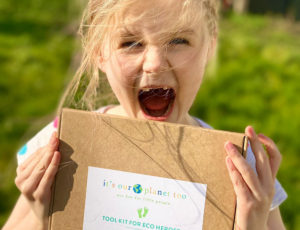
CWB’s Laura Turner speaks to Steve Malkin, CEO and founder of The Planet Mark, a sustainability certification for businesses of any size that recognises continuous improvements, encourages action, and works to build an empowered community of like-minded individuals.
Improving sustainability is high on many companies’ agendas, but are you measuring your efforts? Do you have targets in place to support your progress? Are you communicating sustainability effectively as a business? If the answer to any of these questions is “no”, then The Planet Mark’s sustainability certification may be for you.
The Planet Mark story began back in 2012 when Steve Malkin, CEO of Planet First and founder of The Planet Mark, was introduced to Sir Tim Smit KBE, co-founder of the Eden Project. This meeting of minds led to the discussion of creating a people-driven sustainability programme suitable for any organisation; any size, any sector, anywhere in the world, and at any stage in its sustainability journey.
However, the issue of sustainability was on Malkin’s mind long before The Planet Mark’s formation.
The first real inklings of concern started around 20 years ago whilst Malkin was running his own small business. “I had a marketing company and two young boys at the time,” he says. “I suddenly became very aware of the climate crisis – or global warming as it was more commonly referred to then. Once you have that epiphany, you can’t ignore it. You can’t ignore the facts.
“As a marketing company, we were good at communication. I wanted to use those skills to educate. We began learning everything we could about climate change and carbon emissions. We linked up with Tim, co-founder of the Eden Project, and began discussing the issue of small businesses wanting to take action against the climate crisis, but also needing recognition for it. That’s when we came up with the idea to create a certification for SMEs.”
One of the many impressive elements of The Planet Mark certification is that it is genuinely suitable for any size business.
From large corporations to small independent retailers and brands; even those working from home. Having run a small business himself, Malkin is aware of the restrictions and costs and The Planet Mark’s low resource certification programme reflects this.
“Although we do work with big organisations now, we designed the certification programme for small businesses across all sectors. It’s about creating a good impact that’s also good for business – and it has to be good for business. If a small company wants to apply, we can help. We have a programme to suit all requirements.”
Organisations can apply for certification online or by phone, where they can talk through any concerns, understand the process and time-scale involved, and gather details on how to get started. The programme itself is a very simple three-step process of measurement with no need for consultations. Plus, all necessary tools, resources and community networking opportunities are provided.
“Essentially we take an organisation’s existing data and turn it into a carbon footprint,” says Malkin. “So, for instance, electricity and gas bills, water consumption, fuel usage for company cars and vans, business travel costs and waste. We translate these into the organisation’s CO2 equivalent, which is then converted into a carbon footprint.”
A company’s carbon footprint takes the form of a pie chart, which it uses to choose the elements it wants to tackle.
It then sets a target to reduce its overall carbon footprint by the following year and provides the methods it will adopt to do so. Techniques to reduce carbon footprint can be as straightforward as turning lights off when not needed or switching to LEDs, which will provide a huge saving over 18 months. Simply fixing a dripping tap or making sure computers are off at night will make a difference.
As well as reducing carbon footprint, changes such as these will also save money. On average, organisations certified to The Planet Mark make a 14% carbon saving each year per employee through energy use, waste, water, travel and procurement. They can expect to make cost savings of at least £100 per employee per annum.
For micro-businesses seeking certification the programme offers Planet Mark Start, which doesn’t require a carbon footprint.
“We appreciate that it can be tricky for micro-businesses to collate the required information for a carbon footprint,” says Malkin. “With Planet Mark Start, we discuss what the business’s impacts might be and then work together to tackle them. For example, if someone works from home, we could look at what can be done about heating and lighting, switching travel for meetings to public transport or simply using video conferencing.”
Organisations set their own targets to reduce their carbon footprint, although The Planet Mark asks for a minimum 2.5% reduction year-on-year. (Most businesses opt for the target of a 5% reduction.) Equally, the target can be a total carbon footprint reduction or if a company is growing – opening an additional shop for instance – then The Planet Mark can also measure carbon per sq. m, product or employee, a measurement referred to as “carbon intensities”.
“This is the most important decade to make these changes; we have all of the tools in the box,” continues Malkin. “It’s about taking simple steps to turn activism into action. Children are providing activism, which is our wake-up call to provide the action.”
A key focus for The Planet Mark is embedding communication into its programme.
There are many opportunities for networking. Organisations can attend, join in with, or co-host events as well as contribute to online forums and share information throughout the year. On gaining certification, businesses receive a formal presentation of their printed certificate by Malkin. This is alongside digital assets including a suite of social media graphics and suggested posts, an e-signature and a Planet Mark holder graphic. Retailers also receive a window sticker to show they are actively cutting their carbon emissions, helping to engage conversation with customers about what they’re doing.
The Planet Mark also partners with The Social Value Portal, a social enterprise which enables organisations to enhance their sustainability story by adding social value to their certification. Organisations that opt into social value measurement can assess their contribution to society and the social impact of their business; what they put in and how they’re giving back. Examples of social value include being a Living Wage Employer, supporting charities, and providing work experience and apprenticeships. Some companies also sponsor schools to help gain certification.
“The Planet Mark is essentially good for business and that’s our starting point,” says Malkin. “Cost savings and good business go hand in hand. By gaining The Planet Mark certification it shows you are addressing the problem and taking action. SMEs can also win more business with consumers who want ‘green’ organisations. Plus, green credentials can help attract good people into your company; people who appreciate you putting your values into action.”
Benefits to holding The Planet Mark certification.
Aside from reducing carbon footprint and saving costs, it can help win business in sales presentations, bids and tenders. Certification also enhances brand reputation as well as helping to motivate and keep staff for longer. Not to mention, with every certification issued by The Planet Mark, organisations receive 12 free tickets per year for the Eden Project. Plus, a Cool Earth certificate for protecting an acre of rainforest, which The Planet Mark and Cool Earth protect on their behalf.
“We’re here to certify and to help tackle issues of these times by measuring and improving impact,” confirms Malkin. “This vision brings together three elements: people, nature and tech. We’re good at the ‘human’ bit, with our people-focused programme. In terms of nature, we help protect rainforests with Cool Earth together with our work with the Eden Project. The next phase is tech, which plays an integral role in collecting data and facilitating communication.”
In terms of time-scale, the certification process can take as little as two weeks. In a bid to make it as accessible as possible, costs start at just £250 per annum. This increases to £1,500 per annum for the full programme. Subsequently, The Planet Mark is seeing significant uplift year-on-year, with new companies signing up by the day and a retention rate of 90%.
“Every business on the planet should be reducing carbon,” concludes Malkin. “To turn things around in time, we need to be doing it now.”
For further information on The Planet Mark, please click here.













